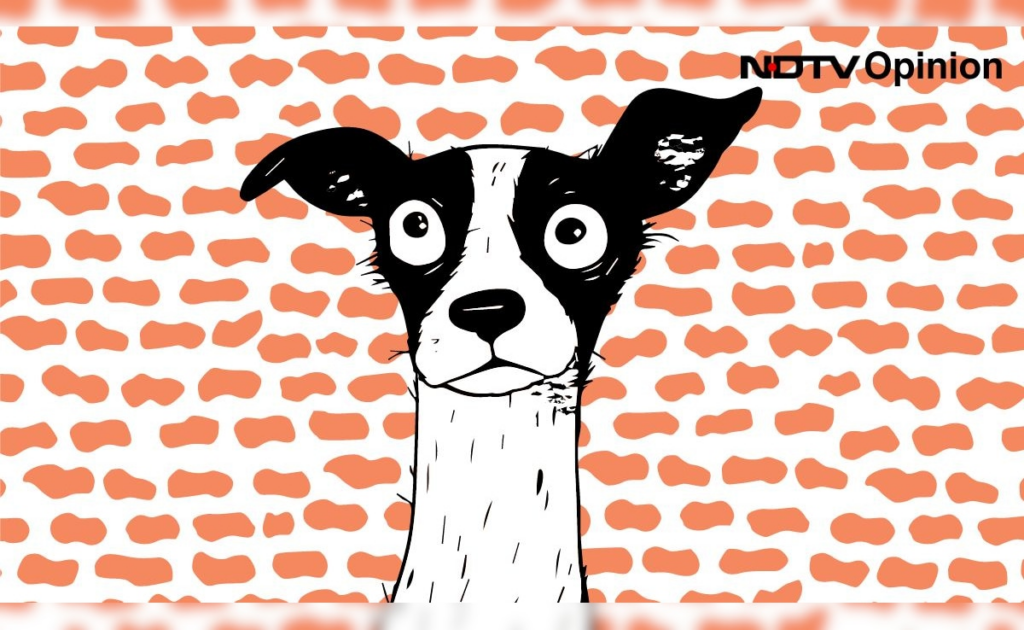“Could we really scan a dog’s brain to figure out what it was thinking? Would we find proof that dogs love us?”
In the prologue to his trailblazing study, How Dogs Love Us, a neuroscientist vocalised what most dog lovers, calling themselves ‘parents’, think about all the time. Except, Dr Gregory Berns was fretting about these existential questions minutes before sending Callie, his adopted dog, into the tunnel of an MRI machine-unsedated-for an active brain MRI test.
I bought this book a couple of years ago and read it at the speed of light. My husband was his casual, dismissive self. “You really don’t know what you mean to Laddoo and Cheeku and need scientific proof for it?” I was, as usual, not listening to him. After a few hours, I put the book away after devouring it. I was irritable and dissatisfied. The book confirmed what I had known from the moment I laid my eyes on Laddoo, our 16-year-old beagle. Yet, there was a malaise-like uneasiness within me for a few days after finishing the book.
Yes, dogs love us the way no human being ever can. Yes, they even dream about us. Yes, they have separation anxiety. Yes, they think of themselves as humans and mimic our behaviours despite their physiological challenges. So, why was I dissatisfied and uneasy?
I realised it much later. All my life, I have looked for relationships that would mimic a dog-human relationship. At a subconscious level, I’ve wanted to be both the dog and the human at different times. No, I don’t wish for servility or that horrible thing called ‘unconditional love’. Only those who have no idea of how dogs behave can attribute these to dogs.
Hell, dogs are demanding. They keep you on your toes all the time. They challenge you the way no human being can. They frustrate you with their defiance. They are also jealous. And if they are anything like my Rajkumari Cheekuvati, they unlock doors that are supposed to stay shut.
Most of us tend to anthropomorphise dogs. We are quick to project our human feelings on them. Dogs are often, erroneously, seen as an extension of or an appendage to their “hoomans” (can we retire this awful word?). So much so there is a booming industry around pet care and pet-led therapy. Not only that, there are whisperers who specialise in communicating with dogs at a hefty fee to soothe the anxieties of not the latter but their owners. Dogs have anxieties of their own, but they need medication and care just like humans do.
My father cannot stand dogs. He’s scared of even my 2-pound toy poodle. “My life is miserable because you have three dogs” is a meme he lives by. Yet, when he stayed at our dog-ridden house while recuperating from COVID-19 three years ago, our ferocious Cheeku was his constant companion. Daddy was on bed rest and had no choice. Cheeku would rest her face on his belly while he froze in fear (also mild disgust). She’d leap out of the bed at the slightest change in his vitals and bark at our door. My father was amazed at this behaviour and began to tolerate his canine grandchildren.
Daddy is still far from being a dog lover. However, he called up late at night last week, way past his bedtime, wih an unusal query. “How are your dogs doing? The tiny one must have grown now.” They are doing great, daddy. No, the tiny one won’t grow any bigger. She doesn’t grow like human babies.
If dogs are not our “babies”, who or what are they? And why are they so important? There are two ways of assessing the dog-human relationship. The first one is by looking at evolution: after all, ties between Homo erectus and a canine-like species have been proved by fossil evidence from half a million ago. There’s also evidence that dogs and humans have not just peacefully co-existed but also loved each other: more than 12,000-year-old remains of a man with an arm around his puppy were excavated from a tomb in Israel. So, it’s almost de jure that dogs and human beings will have close ties. The second approach is looking at the psychosocial context of the human-canine relationship. And this is where sublimated human selfishness becomes apparent.
Dogs do not need humans. It’s humans who need dogs. And it’s not because they are cute, helpful, therapeutic, service animals et cetera. We need dogs to remind ourselves of our potential. Dogs teach us how to be better versions of ourselves. Therapy dogs work because they dissipate the human urge to navel-gaze. “Hey woman, you may be undergoing a breakdown of your life, but my water bowl is empty. And I’ll keep banging and clanging till you drag your self-pitying self to provide me with hydration.” Without humans, dogs would just be fine. The vice versa is not valid.
As for me, my biggest ambition is to receive validation from Laddoo, Cheeku, and Idli. A hearty, screechy “Good dog” flung in my direction.
(Nishtha Gautam is a Delhi-based author and academic.)
Disclaimer: These are the personal opinions of the author
Track Latest News Live on NDTV.com and get news updates from India and around the world.
Watch Live News:
Follow Us:
………………………….. Advertisement …………………………..

